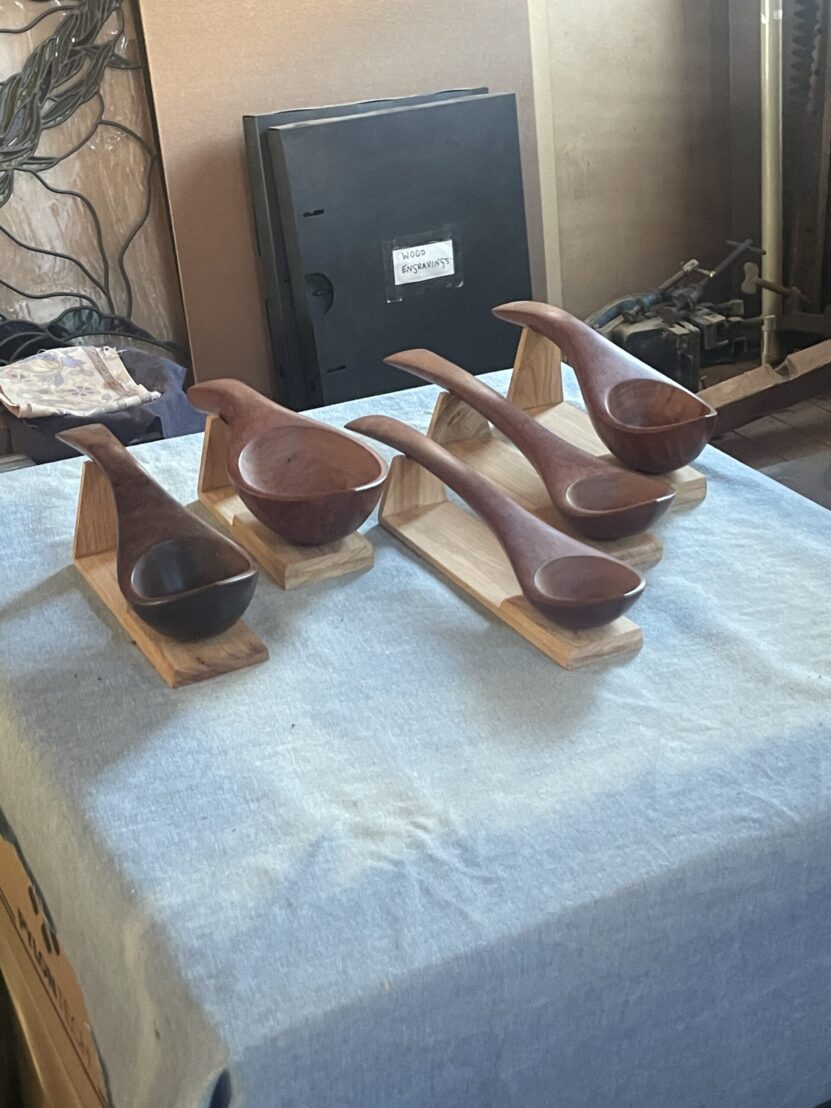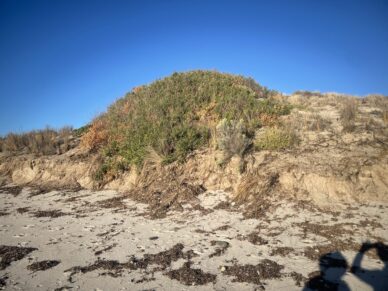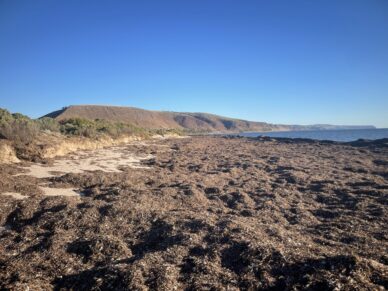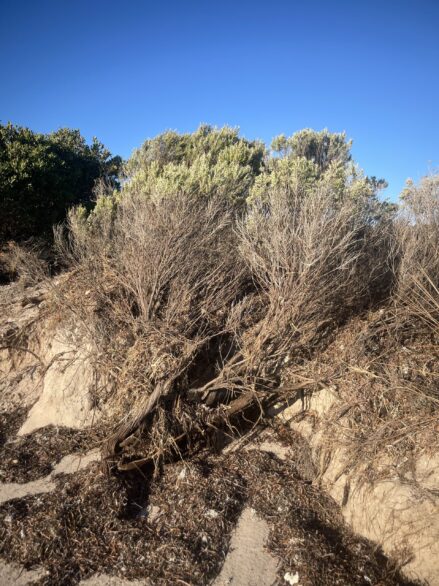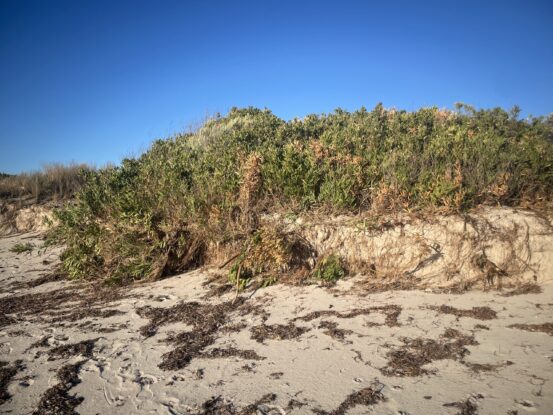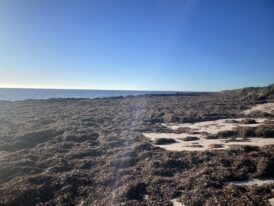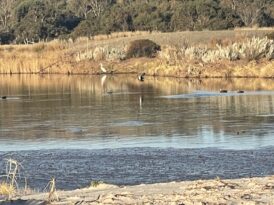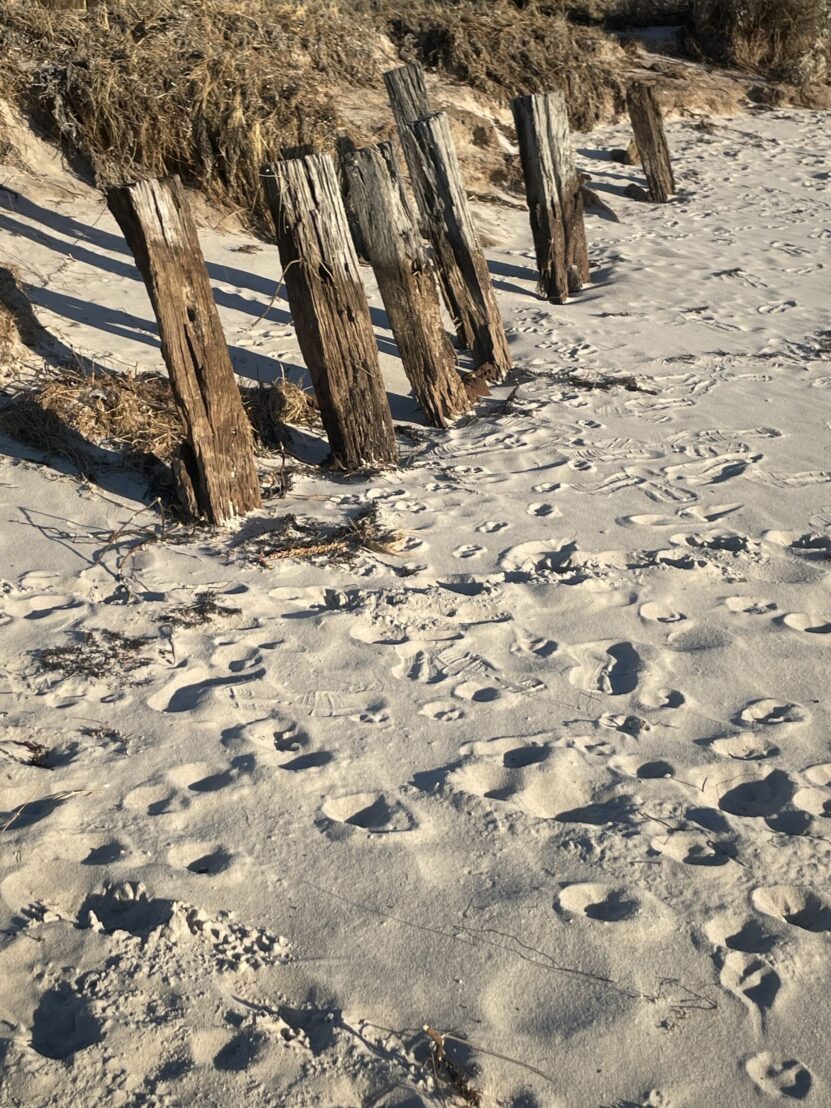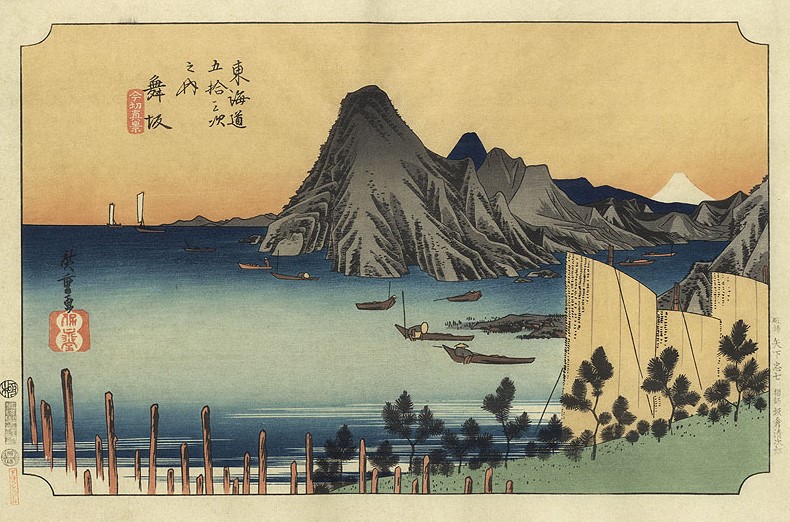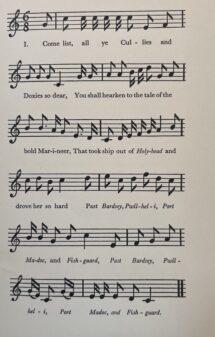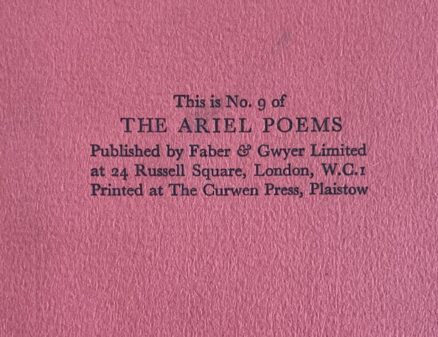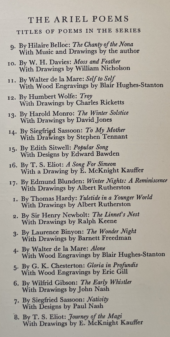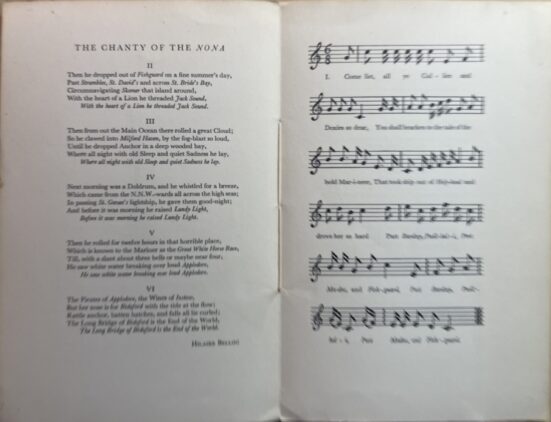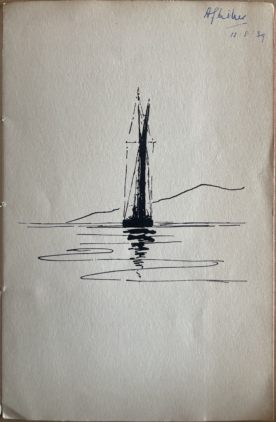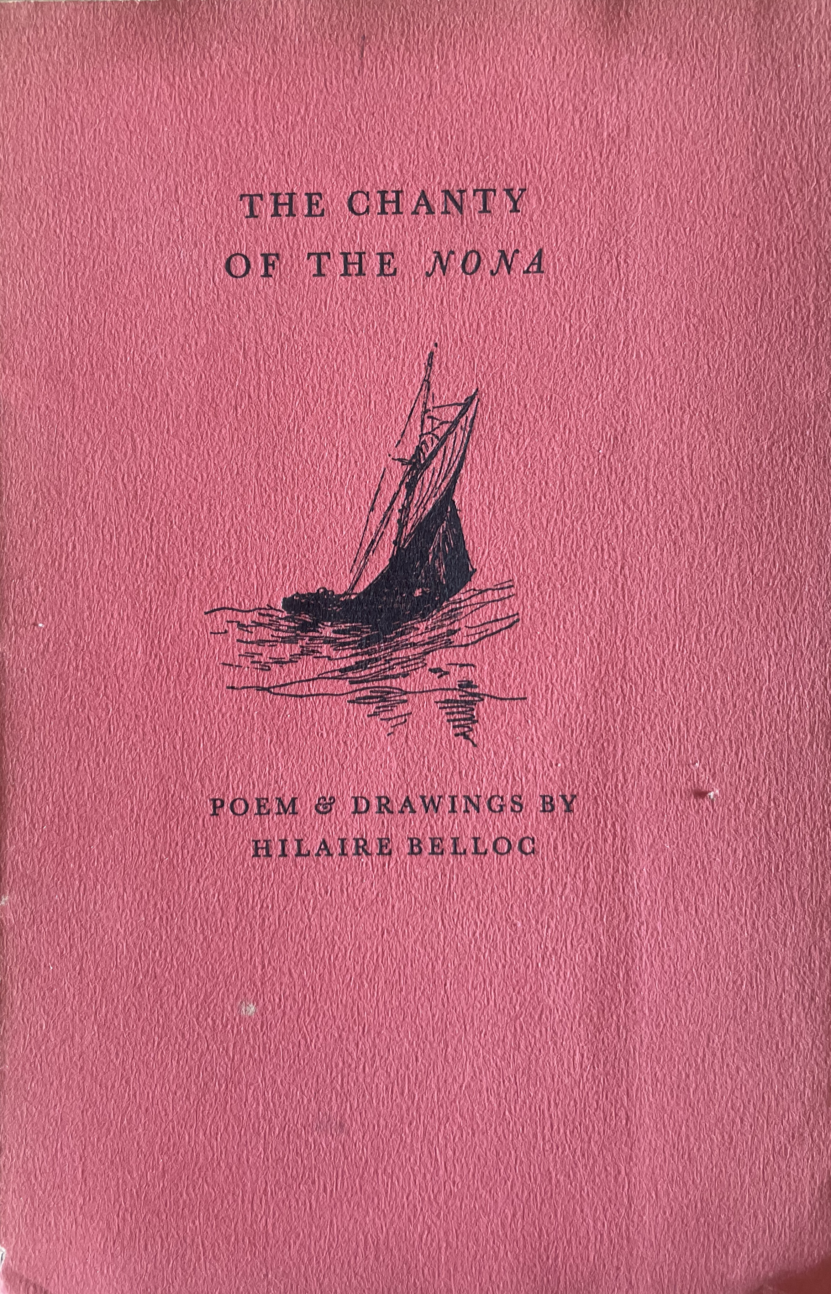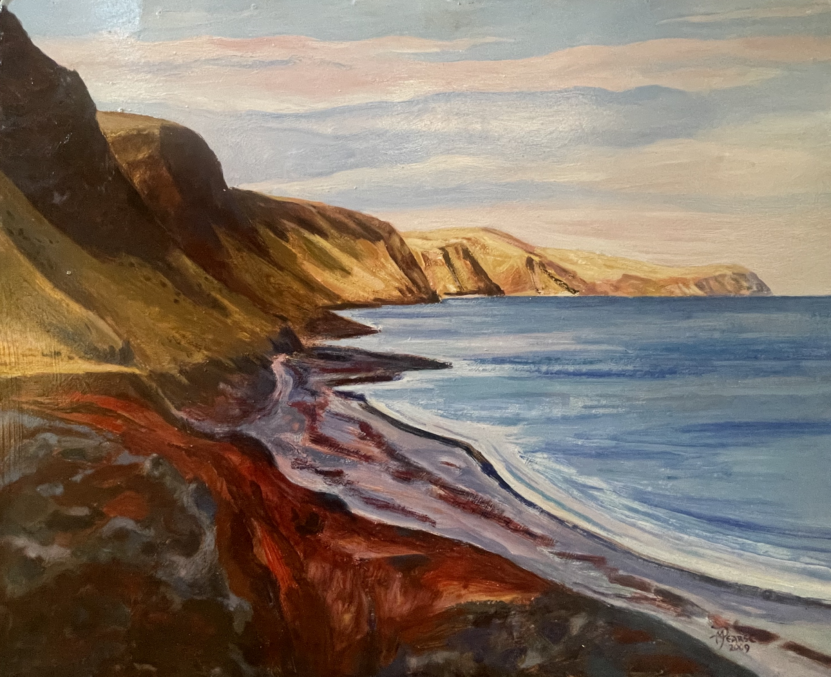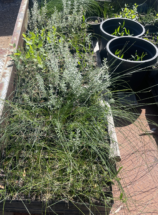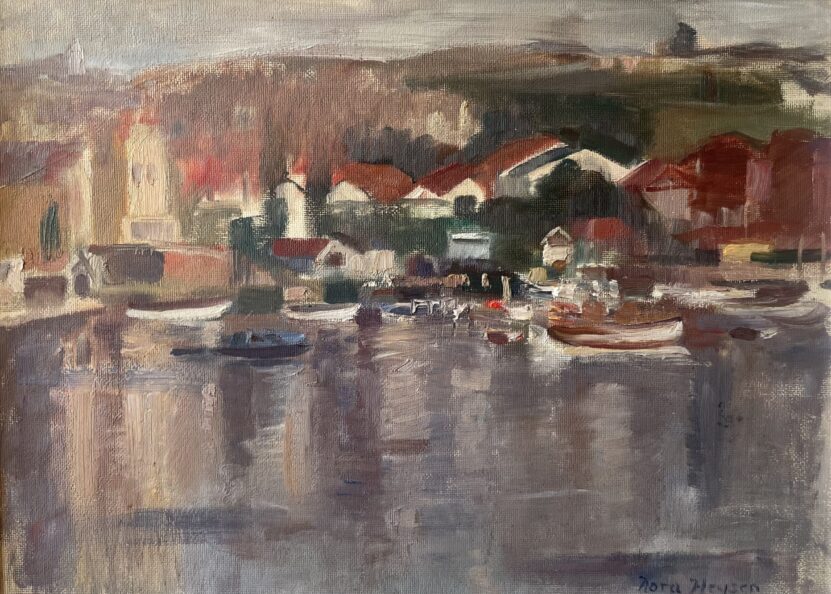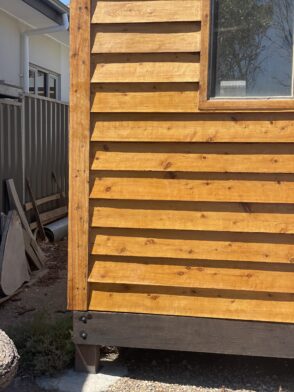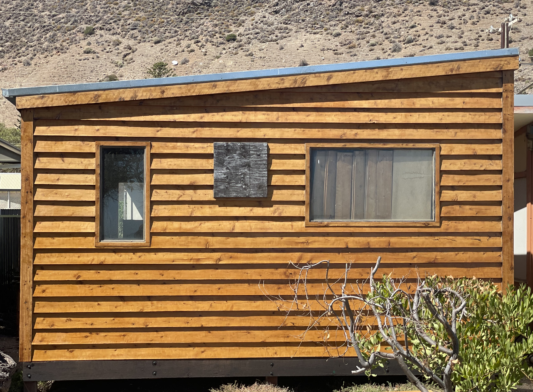My little fleet of spoons embarked on an exploratory voyage – and after a month or so, returned intact. I have to admit, I was relieved to get them back: they look at home in the Boatshed….
Author: Chris Wells
Tempest
Utagawa Hiroshige 3
I submitted a humble bid, just for the fun of it – and somehow it slipped under the radar.
Maisaka: View of Imagiri, designed in the 1830’s by Utagawa Hiroshige, is number forty of a famous series – 53 Stations of the Tokaido. The Tokaido was the more popular of two roads connecting Edo (Tokyo) and Kyoto (the other being the Kisokaido).
A hundred or so years later, a Japanese firm began making high-quality recut prints of Hiroshige and Hokusai originals. The beautiful print below is one of those.
I got lucky….
Reflection 7
There, sailing the sea, we play every part of life: control, direction, effort, fate; and there can we test ourselves and know our state. All that which concerns the sea is profound and final. The sea provides visions, darknesses, revelations. The sea puts ever before us those twin faces of reality: greatness and certitude; greatness stretched almost to the edge of infinity (greatness in extent, greatness in changes not to be numbered), and the certitude of a level remaining for ever and standing upon the deeps. The sea has taken me to itself whenever I sought it and has given me relief from men. It has rendered remote the cares and the wastes of land; for of all creatures that move and breathe upon the earth we of mankind are the fullest of sorrow. But the sea shall comfort us, and perpetually show us new things and assure us. It is the common sacrament of the world. May it be to others what it has been to me.
Hillaire Belloc: from The Cruise of the Nona
The Chanty of the Nona
I spotted this tiny book in a Treloars catalogue, and knew it must be secured, whatever the price. The price was $35, for a publication of two pages in pamphlet form. An indulgence, maybe – but as it happens, I had a license to indulge (a book voucher)….and there are some actions that need to be taken, however irrational they might seem from afar. The Chanty of the Nona, by Hillaire Belloc, now enjoys its rightful place in the Boatshed library. It is, indeed, a slender volume: the Treloars staff took at least a week to locate it – hidden amidst all the priceless tomes. The poem is fair to middling, and likewise the setting….but even so, I am glad the Chanty has found its home.
Looking South 2
Reflection 6
To face the elements is, to be sure, no light matter when the sea is in its grandest mood. You must then know the sea, and know that you know it, and not forget that is was meant to be sailed over.
Joshua Slocum: from Sailing alone around the world
Boatshed nursery
Across the River 2
Nora Heysen (1911 – 2003)
Across the River
Oil on Board
Sam has taken a new photo, which I think better represents the original. Light floods in; the colours warm up – and we can now see a lively texture. As for provenance: I am awaiting word from the curators at Nora Heysen Foundation, The Cedars, Hahndorf.
